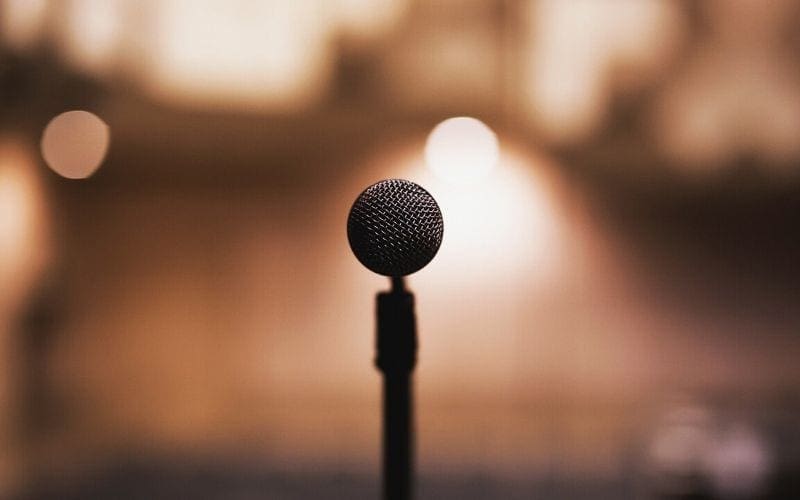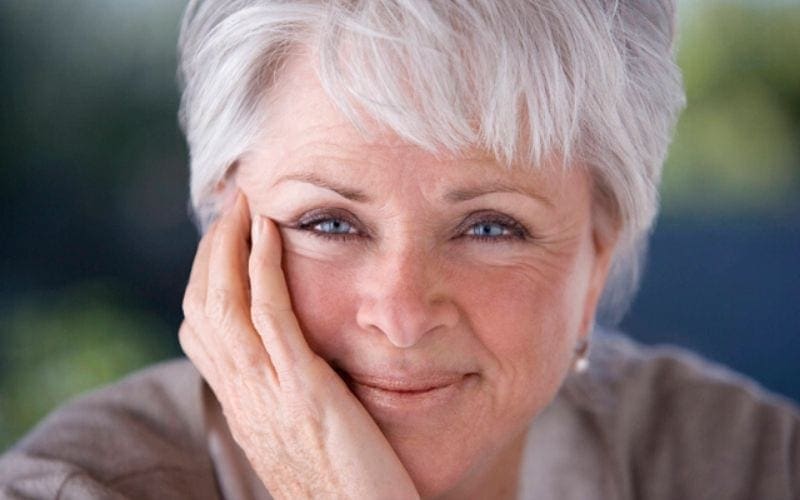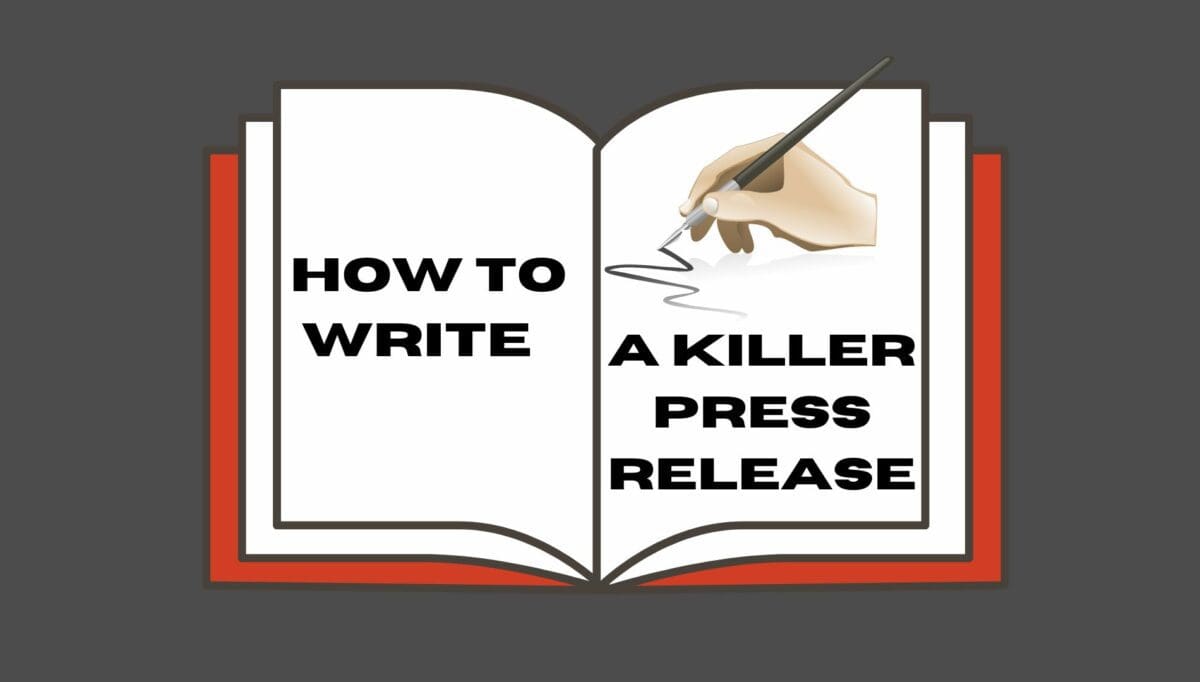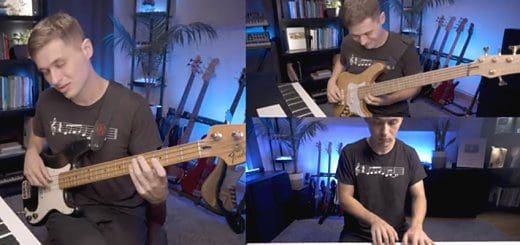I recently read John Cleese’s autobiography “So Anyway”. In the book, Cleese reveals how he experienced crippling stage fright and admits that he still suffers despite being a veteran of over 40 years on the stage. He says “It was this fear of being bad, much more than the desire to be good”. I am surprised by this revelation, and can completely relate. My stage fright is my constant companion. People have given me all sorts of advice over the years. “Imagine the audience naked”, “practice until you can’t get it wrong”, or “zone in on one person in the audience”. No matter what, it just never seems to get any easier when I perform. What am I to do about it? Musicians with performance anxiety – don’t fret. In this article, I will look at what stage fright is, and explore some techniques and resources to overcome it.

Stage Fright Meaning?
Stage fright can be defined as a sense of nervousness before or during a performance. It is also known as performance anxiety. It is safe to say that millions of people all over the world, no matter their level of proficiency, suffer from debilitating stage fright that totally incapacitates them. They forget their words, freeze up, or their fingers refuse to co-operate, and their performance is ruined. Why is it that we can perform a piece of music so perfectly in our bedrooms, but fall to pieces as soon as people watch us?
Performance anxiety is accompanied by various physical symptoms. These include (but are not limited to) a galloping heart, dry mouth, shaky voice, red face, tremors, perspiring, dizziness and queasiness. Physical symptoms will vary from person to person. It is not unusual for a person to experience a physical symptom of stage fright that differs to other’s symptoms. I watched the enormously talented Cat Power perform in an NPR Tiny Desks Concerts, and she nervously performed with her hand under her chin. Adele has even admitted to projectile vomiting before a performance.
Why Does Stage Fright Happen?

Stage fright is an acute form of social anxiety, which is an overwhelming fear of social situations and interaction with other people. But what are the underlying psychological reasons for this anxiety? Why are people competent in other areas of their lives, but fall to pieces with a guitar in front of a group of their friends?
Nerves
One reason for stage fright is that we are scared of looking nervous. This is weird if we think about it. If we are nervous, then why are we scared of looking nervous? Much better to accept that we are nervous and even enjoy the tingly nervous feelings.
Audience

Another common complaint of sufferers is the size of the audience. They will say that they are fine in front of a small audience, but put them in front of a “big” audience, and they lose it. This is also a strange thought because the people in a small audience are exactly the same people as in a big audience. Also, how do you define “big”? A big audience for me is a minuscule audience for Bruce Springsteen.
Some people say that they are worried that people are judging them. This is unfounded, as the audience is actually rooting for you! They did not choose to spend their time (and possibly spend their money) watching an uncomfortable performer. They came to be entertained, and want you to succeed.
Past Experience
Many people cite their past failures as a reason for their stage fright. But if you think about it, why would your past performance affect this performance. This performance is in this moment in time, and only your preparation for this moment will affect this performance. If you are not satisfied with your current level of expertise, then there is something you can do about it (and I don’t need to remind you what THAT is).
Self-Absorption
Another common cause of stage fright is self-absorption. This is a tough one to get through your head. Audiences seldom enjoy the performance of an artist who is totally wrapped up in themselves. It is impossible for an artist to give it all if all they are doing is taking. When I was performing at one show, I asked the sound engineers to turn up the house lights a bit so I could see the faces of the audience. They were surprised, as I was the first person who had ever asked for this!
Lastly, the act of comparing yourself to others will cause performance anxiety. Don’t do it! You are yourself and they are themselves. They can’t be you, and you can’t be them. Just do your own thing.
Which Of These Is True About Stage Fright?
1. It can cause physical symptoms like sweating, shaking, and dry mouth.
2. It can cause mental symptoms like fear, anxiety, and lack of focus.
3. It can be caused by a fear of failure or a fear of being judged.
4. It can be managed with proper preparation and practice.
5. It can be overcome with practice and self-confidence.
The answer is all of the above.
There are so many symptoms of stage Fright! Stage fright is a type of anxiety that affects performers before and during a performance. Symptoms of stage fright can include physical symptoms such as trembling, sweating, nausea, and a racing heart, as well as mental symptoms such as difficulty concentrating, feeling overwhelmed, and a fear of being judged.
How To Overcome Stage Fright

Like most things in life, if you want to overcome stage fright, then you are going to have to make it one of your missions to overcome it. Paraphrasing Tony Robbins, decide what you want to do and then take massive action towards achieving it. It is not going to just go away on its own.
How To Get Over Stage Fright – The Alexander Technique
One action you can take is to find out more about the Alexander technique, find a certified teacher in your area, or even engage in distance learning.
This method has been drawn from the author’s 20 years of experience in working with artists. Using this technique, a teacher will help you to feel better about yourself and to move in a more relaxed way. You will become more comfortable in your own body. The teacher will help you get rid of a lifetime of bad habits that have been holding you back.
This is not, as they say, a spectator sport. You cannot just watch a video or read a book. It needs some effort, and you have to get involved. There is a process for changing your habitual motion. The result is a better posture with more fluid movements.
How To Get Rid Of Stage Fright – Autogenic Training
Another thing you can do is undertake Autogenic Training. This relaxation technique was established by German psychiatrist Johannes Heinrich Schultz, and was first published in 1932. The training is used to lessen the effects of stress-induced and psychological disorders, of which stage fright is one.
Using this technique, participants engage in multiple repetitions of a set of visualizations. For example, they will picture what “heavy arms” or “warm legs” are like. There are a set of exercises that are easy to learn and remember and can be performed in any posture in a quiet room in your house.
There are several good resources on the internet that can be used to learn about this technique and get in touch with a therapist.
Other Cognitive Behavioral Methods
The key principle of cognitive behavioral methods for treating anxiety is that your thoughts affect your emotions, which affect your behavior and actions. By undertaking cognitive behavioral therapy, you will be treating the root cause of the problem which, of course, is your thoughts. Google can easily help you find a therapist either in your area or one that will work remotely. Just remember to ask for and check up on a few references before enrolling for some sessions. Perhaps ask for possible references specifically for performance anxiety.
The Work Of Byron Katie

This is a simple process of examining our negative thoughts and questioning their validity. This is done in a simple and meditative way. For me, personally, this has been a wonderful technique for tackling my stage fright.
Using this approach on how to get rid of stage fright, Byron Katie invites us to ask ourselves whether a particular thought is true. There are only two possible one-word answers to this question – “Yes” or “No”. Then she questions whether we absolutely know for sure that this thought is true. If, after an appropriate period of meditation, the answer is still yes to these two questions, Katie asks us to reflect on how we react when we believe that thought. Lastly, we are asked where we would be without that thought.
So, let’s take an example thought that may cause us anxiety, which causes stage fright. Say “People will judge me”. Can you know that this is absolutely true? On reflection, most artists will confirm that they don’t know for sure that people will judge them. They also understand that without the thought “people will judge me”, they would be free to perform to the best of their ability. This example is only a very short example of the possibilities for using The Work to tackle performance anxiety.
How To Deal With Stage Fright – Other Online Resources
There is no shortage of online courses and books that will tackle the problem from a practical angle. A simple google search for “course for overcoming stage fright for musicians” garnered over 20 million results. Furthermore, the “book for overcoming stage fright for musicians” brought forth a choice of over 15 million sites. The selection can be overwhelming, but there is no lack of resources for you to try.
Closing Thoughts On What Is Stage Fright

Stage fight is a type of anxiety disorder. The disorder is brought about by recurring negative thoughts which have associated negative physical consequences. In order to treat stage fright, we have to get to the source of the problem… our thoughts.
If stage fright is holding us back, then we need to take action to tackle the problem of how to get over performance anxiety. There are a variety of techniques, websites and resources from which to choose once we have made that decision.
This is my fourth year performing at the National Arts Festival and this is my first show. Something feels strange but I can’t quite put my finger on it… then suddenly, it dawns on me, I am not nervous! This is the first time in my entire life I am not nervous performing in front of a live audience. What happened to my stage fright and is it gone for good? I can’t know for sure, but I do know that with a combination of the above techniques and resources, much like myself, you can eventually learn to enjoy the moment and be at your best.










